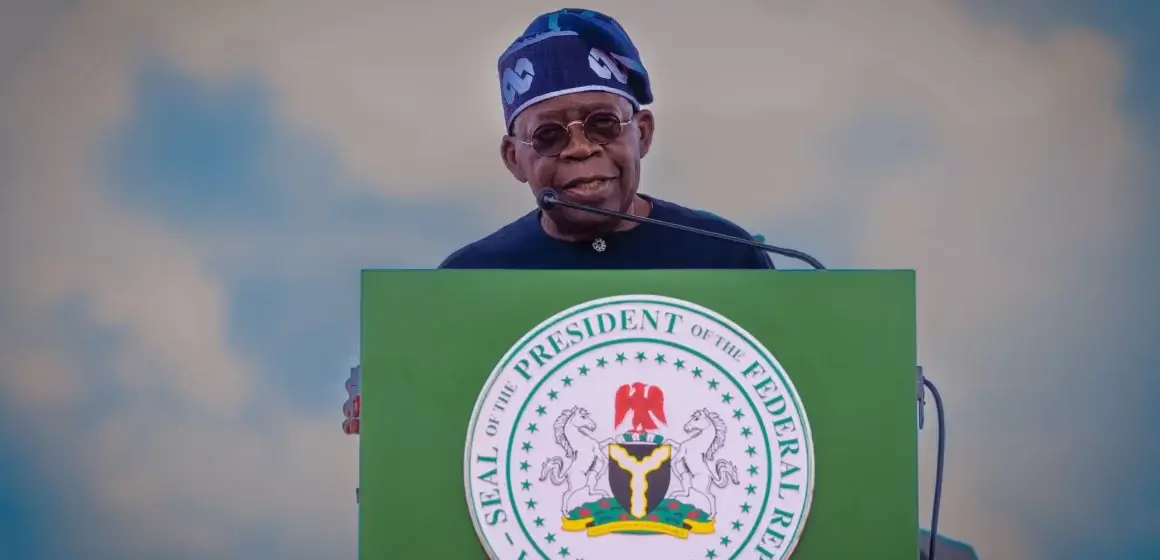|
LISTEN TO THIS THE AFRICANA VOICE ARTICLE NOW
Getting your Trinity Audio player ready...
|
Nigeria’s President Bola Tinubu signed a bill into law Wednesday to reintroduce a national anthem last sung nearly five decades ago. The process, which has raised concerns about the compliant nature of the country’s parliament, began in the lower house just last week. The bill was approved the same day and swiftly passed by the upper house on Tuesday, receiving the president’s assent hours later.
Both houses of parliament are dominated by members of the president’s ruling All Progressives Congress party. Analysts have noted the unusual speed of this legislative change, particularly as Nigeria faces its worst cost-of-living crisis in a generation.
“This shows that the government can clearly work when spurred to do so,” commented political analyst Afolabi Adekaiyaoja. “But the speed of this amendment and change shows a lack of priorities. The lack of public engagement also doesn’t show a legislature able to provide necessary checks on the executive — which doesn’t encourage citizens that there is effective accountability.”
The decision to revert to the old anthem, “Nigeria, We Hail Thee,” has been met with widespread bemusement and criticism. Oluseun Onigbinde, chief executive of Nigerian budget watchdog BudgIT, wrote on social media platform X that the change was made “without any form of consultation or leaning into popular demand.”
The newly re-adopted anthem, originally introduced in 1960 as Nigeria gained independence from British colonial rule, was written by Lillian Jean Williams and composed by Frances Berda, both British women living in Nigeria at the time. This historical detail has drawn criticism from some Nigerians who argue that the national anthem should be written by citizens.
The anthem was replaced in 1978 by “Arise, O Compatriots,” a song composed by five Nigerians and set to music by Ben Odiase, a police officer. The change was part of an effort to foster unity in a country still healing from a civil war that had ended eight years earlier.
Supporters of the old anthem, like Senator Opeyemi Bamidele, an ally of the president, described it as “motivational” and believed it would encourage young Nigerians to be more committed to the ideals of nationhood. However, opposition lawmaker Kingsley Chinda questioned the necessity of the change, asking, “What value will it add to us as a nation?”
Concerns have been raised that a pliant parliament could pass more significant legislation without adequate scrutiny. Governance analyst Joachim MacEbong of data firm Stears commented that the rapid passing of the bill showed parliament was “beholden” to the executive branch, indicating a trend of “accelerated subservience to the whims of the executive” that is likely to continue.
Nigeria’s Attorney General, Lateef Fagbemi, told a senate committee on Monday that the process of changing a national symbol should involve broader citizen participation. He said that the outcome of such a consultative process would better reflect the wishes of the majority of Nigerians.
At a parliamentary session on Wednesday, while marking 25 years of unbroken democratic rule, lawmakers were led by a band in a rendition of the newly adopted anthem. As debates and criticisms continue, the move to revert to the old anthem remains a hotly contested issue, reflecting deeper tensions about national identity and governance in Nigeria.











LEAVE A COMMENT
You must be logged in to post a comment.